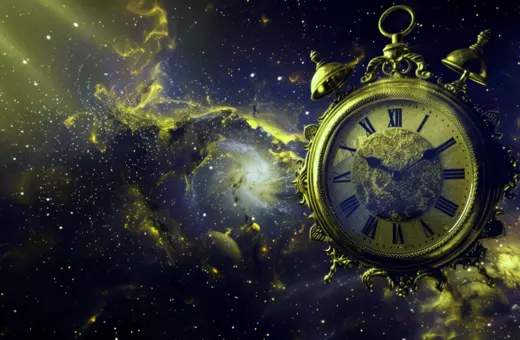Does your cat know when it’s time to be fed? Does your dog know what time you arrive home from work? The world animals experientially inhabit is far removed from our human world – and this extends to their perception of time. This doesn’t mean time is just subjective however, in fact the differences between our human perception of time and animal time suggests an objective time by which we measure these differences against, writes Samuel Baron.
Imagine you’re standing on a beach at night. In the distance, you see a slowly pulsing light. Now imagine the pulsing starts to get faster. It quickly gains speed until, after a while, you no-longer see a pulse. Instead, you see a single light, holding steady.
This is an example of temporal resolution. Our perceptual systems are only able to discern something as changing, when the change is sufficiently slow. Speed the change up, and we no-longer discern any change at all. Instead, we experience an illusion of constancy. In fact, we experience this illusion all the time. Computer and television screens flicker at a certain rate. But the flicker happens so fast, we don’t see it.
Animals vary in how much flicker they can detect. An animal’s temporal resolution is correlated with their body size and their metabolic rate. Small animals, with a high metabolic rate tend to have sharper temporal resolution compared to humans. Large animals with a low metabolic rate tend to have weaker temporal resolution.
We often feel like we’re living in a world of constant change. But how much change you experience depends on the kind of animal you are.
The common starling, for instance, can resolve lights that pulse extremely fast, pulses that we can’t see. For example, they wouldn’t be fooled by a television or a computer screen. Seeing, instead, a rapidly flickering image. A sperm whale, on the other hand, won’t even be able to see the slow pulse of light you initially saw on the beach. For them, the light is still.
We often feel like we’re living in a world of constant change. But how much change you experience depends on the kind of animal you are. A mythological giant whose heart beats once in a hundred years may not even notice the rise and fall of human civilisation. Even a turtle who lives 100 years experiences a different world to our own, due to their slow metabolic rate.
Temporal Integration Windows
You are tapping your leg with a tambourine. With each tap, you feel the strike of the instrument against your skin, you see the light glinting off the metal symbols, and you hear a clinking sound.
The strike, the sound and the glint all get to your brain in different ways. You see the glint because light bounces off the tambourine and enters your retina. You hear the sound because the strike causes the air to vibrate, which in turn produces vibrations in your ear. You feel the strike, because nerve endings in your skin convert the touch of the instrument into electrical signals that shoot up your spine.
The window of time in which your brain binds different information into a single experience is called the temporal integration window.
Because these three different pieces of information are transmitted in different ways, they all reach your brain at different times. But that’s not what you experience. The strike, the sound and the glint all seem to occur together.





















Join the conversation